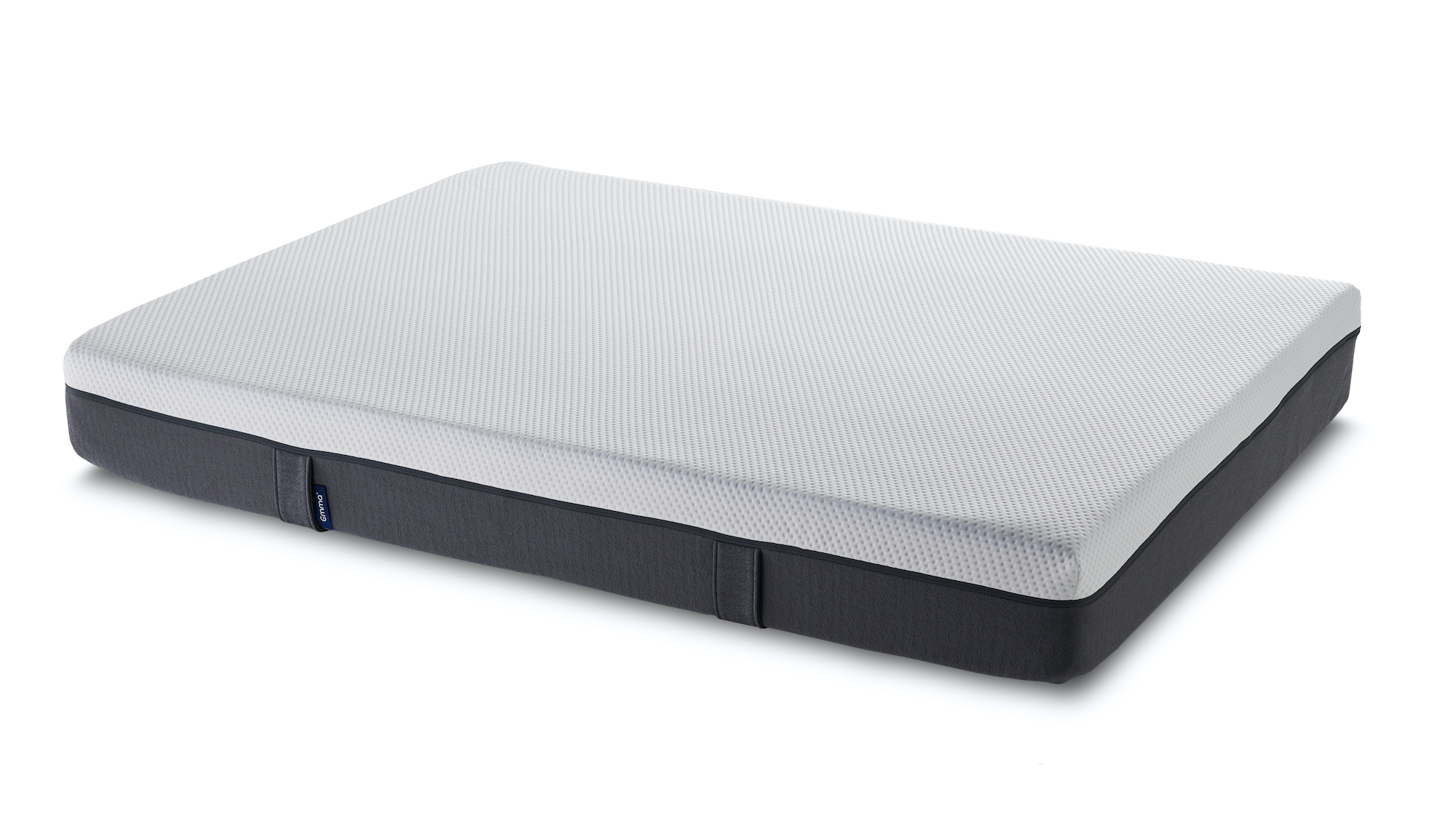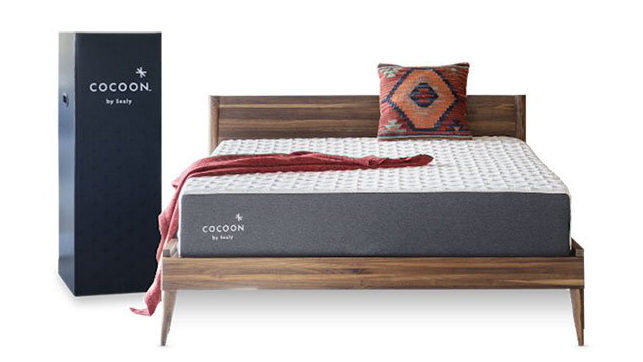Are memory foam mattresses good for your sleep? We look at the pros and cons
Thinking of buying a memory foam mattress? Here we look at whether they are a good choice for different types of sleeper

If you are looking to upgrade your mattress, you may be wondering, are memory foam mattresses good? As this is a very popular type of bed we feel it's a fair question to ask.
After all, when choosing the best mattress for your body it’s important to get it right, especially if you are making the switch from a traditional spring models as these are very different in terms of feel and support.
We’ve been testing the best memory foam mattresses for a number of years now and while there are some big benefits to them, there are drawbacks for certain types of sleeper.
Here we go through the main pros and cons to help you figure out whether memory foam mattresses are good for your sleep needs or not. And if you are looking to upgrade, now is a great time to buy as we’re seeing the arrival of early Presidents’ Day mattress sales.
The benefits of memory foam
All-foam mattresses come with many features designed to help you sleep better and wake up feeling refreshed. One of the most instant benefits is comfort, as memory foam is known for its body ‘hugging’ feel.

These mattresses are also suitable for most sleeping positions and if you need extra pressure relief at the shoulders, knees, and hips, for example, when sleeping on your side, you can sink in just the right amount without compromising on support.
Another benefit is that they have minimal motion transfer, making them a great choice if you share a bed. If you or your partner change position while sleeping, then this particular mattress material isolates this movement so that the other person isn’t disturbed by the movement as they sleep.
Sign up to get the BEST of Tom's Guide direct to your inbox.
Get instant access to breaking news, the hottest reviews, great deals and helpful tips.
When it comes to health, most memory foams used nowadays are hypoallergenic and low-toxin, making them safe if you suffer from common allergies too. And if you are worried about sleeping hot, then many all-foam beds now come with added features such as cooling gels and fibers to help you maintain a comfortable temperature during sleep.
The pros of memory foam mattresses:
- Great support, pressure relief, and motion isolation
- Many are hypoallergenic and toxin free
- Some come with added cooling features
- Does Goodwill take mattresses? Everything you need to know
The drawbacks of memory foam
If you’re now thinking about making the leap to memory foam, take a minute to read this section first, as while all-foam beds are comfy, pressure relieving and quite often affordable, they won’t suit everyone.
As mentioned, one drawback of some memory foam beds is that they retain excess heat, leading to overheating which, in turn, causes disturbed sleep. The good news is that most modern foams are designed to be more breathable, but this only applies to models where they are made with cooling technologies and materials such as gel-infused foam, perforated foam, and copper-infused fibers.

Even then, if you sleep really hot or you’re dealing with hot flashes or night sweats, then we’d recommend a proper cooling mattress or a breathable hybrid, where air flows freely through and around the coils inside.
While that famous body hug feel is a big draw for some sleepers, others will run for the hills at the thought of sinking in, even slightly, to their mattress. If that’s you, look for a firm foam mattress or a medium-firm hybrid, as these will keep you on top of the mattress, rather than allowing you to sink in. This is particularly beneficial for stomach and back sleepers.
Another drawback is weight. While all-foam mattresses in a box are a convenient way to get a new bed delivered to your front door (or bedroom), these can be much heavier than traditional mattresses - especially in the larger sizes. Though admittedly, they aren’t as heavy as hybrids as those are made with coils too.
Most new mattresses smell at first, but foam beds can be particularly prone to this. The pungent smell is called mattress off-gassing and it’s a byproduct of layers of foam being heavily compressed for shipping. How long it hangs around depends on the mattress, so we always recommend opening a window during unboxing and leaving it open (if safe) for several hours after until the smell dissipates.
The cons of memory foam mattresses:
- Can be more expensive than innerspring models
- Prone to off-gassing, which can be pungent
- Not all are suitable for hot sleepers
Are memory foam mattresses good for hot sleepers?
This material used to have a bad reputation for being too hot to sleep on, with the dense foam absorbing body heat and creating an uncomfortably warm surface. However, things have since changed a lot.

While those who sleep very hot may still struggle on memory foam, most will find a bed that offers ample sleep temperature comfort. Many mattresses now have extra features and cooling technology that help regulate body temperature.
For example, top layers with cooling gel or a more breathable and airier foam that’s perforated. Also look out for materials such as graphite, blended with foam to dissipate excess heat.
You should also make sure that your mattress sits on a bed frame that allows for plenty of airflow, such as one with a slatted base. Your bedding should also be cool and breathable, and made from non-synthetic materials including bamboo or cotton that evaporate sweat easily and remain cooler to the touch.
Are memory foam mattresses good for pressure relief?
When it comes to cozy sleep, memory foam mattresses come out on top every time, adding comfort to areas that dig into the mattress more, such as your shoulders, knees and hips. If these are not cushioned, you risk waking up sore and aching – it can also be a big reason why you wake in the night as your body struggles to achieve a comfortable position for long.
Because foam conforms well to the body, these pressure points can be cushioned while the rest of the body still maintains enough support for the body to be in alignment. However, it’s crucial that you find the right level of support and pressure relief for your body weight and sleep position.
Lighter body weights generally need a softer surface, while heavier body weights will benefit more from a firmer mattress that is able to support the body and allow the pressure points to be cushioned without sinking into the mattress too much.
Are memory foam mattresses good for couples?
If you share a bed, then the chances are that you and your co-sleeper will have slightly different ideas of what constitutes a comfortable bed. So it’s good to find a compromise.

A common complaint with co-sleepers on traditional spring mattresses is motion transfer, where one person shifts and causes movement in the mattress only to disturb the other sleeper. Memory foam is excellent for minimizing this motion as it absorbs movement rather than transferring it. These beds are also quiet, so if your sleep partner tends to move around in their sleep, then you won’t be woken up by squeaky springs.
If you and your sleep partner have very different body weights or prefer the feel of springs over foam, then a hybrid mattress offers the best of both worlds to deliver support and firmness, with a little added bounce.
Should you buy a memory foam mattress?
If you are looking for next-level comfort, you’ll get what you need from a foam bed, providing you get the right one for your body, sleep style and comfort requirements. Most come on a sleep trial (the average is 100 nights), and if you change your mind during that time, you can return the mattress for a refund.
You should consider a memory foam mattress if you want:
- Superb comfort, support and pressure relief
- Minimal motion transfer (ideal for co-sleepers)
- An affordable mattress for your main bed
You might be better off looking at other mattress types if you:
- Sleep very hot and don’t have budget for a cooling bed
- You dislike the feel of your mattress hugging you
- You want an all-organic bed (see our organic mattress guide instead)
Ultimately, memory foam mattresses are good for a range of sleepers, especially those seeking unbridled comfort and sink-in coziness. And because many are now designed with cooling fabrics and technologies, you won’t overheat while snoozing on one.
If you like the sound of memory foam but your existing bed has a few years left in it, then you could opt for one of the best mattress toppers instead as the majority of these are made from memory foam. This enables them to make older beds firmer or softer as needed, tiding you over until you are ready to make a bigger upgrade.
Read more:
- The best mattress for side sleepers
- Freshen up your bed with reliable mattress protector
Grace is an experienced sleep writer and mattress reviewer who also contributes to our sister site TechRadar, among other Future plc brands. She's a big fan of organic sleep products and has recently invested in a wool mattress topper that she quite happily describes as "life-changing." (Hey, we're serious about our sleep products). When she isn't testing mattresses or writing about sleep, Grace enjoys reading and creative writing, and incorporates meditation and yoga into her wellness routine.

